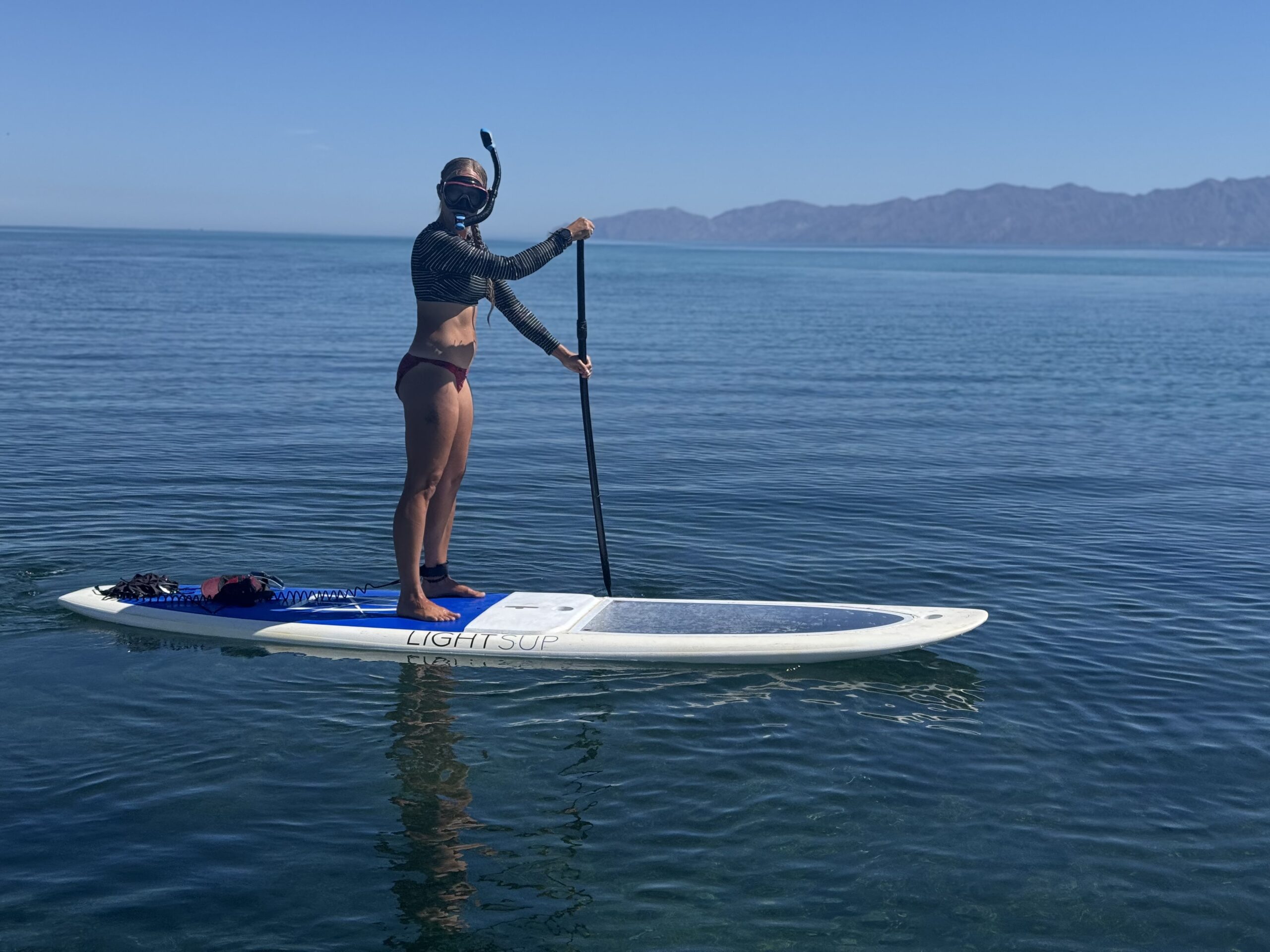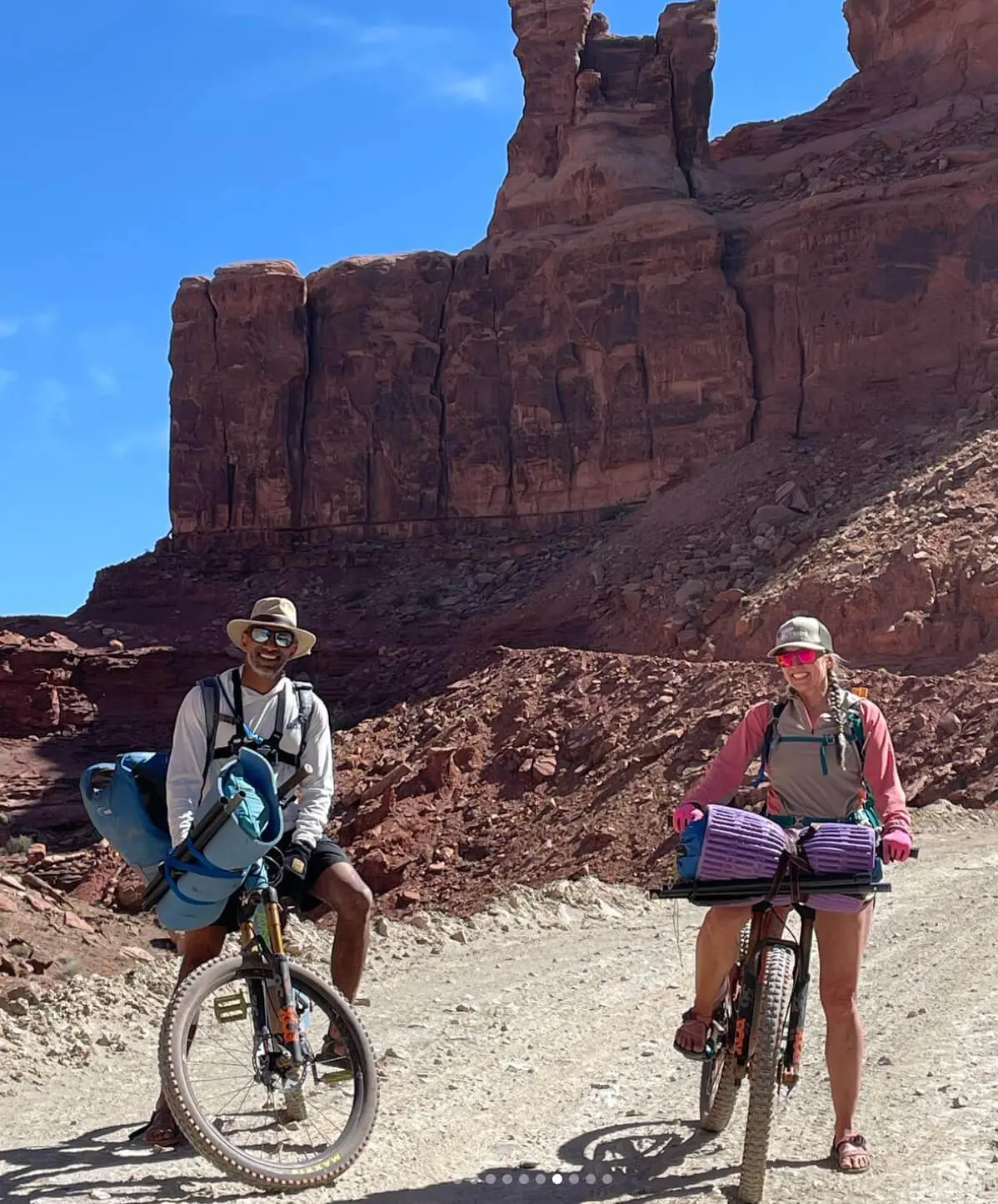A human-powered adventure you didn’t know you needed
I discovered SUPorkeling a few years ago while adventuring through Baja California—starting in the calm turquoise waters of Bahía de Concepción, then heading down to La Ventana and Cabo Pulmo. I’ve had some truly wild encounters: whales gliding beneath my board, curious sea lions zipping past me, and the kind of salty, sunny memories that happen when you combine good friends, a dog, and a day on the water.
If you’re new to the idea of SUPorkeling, or just curious about how to do it right, this guide will walk you through the why, how, and where of it all—plus how to keep it low-impact and leave no trace.
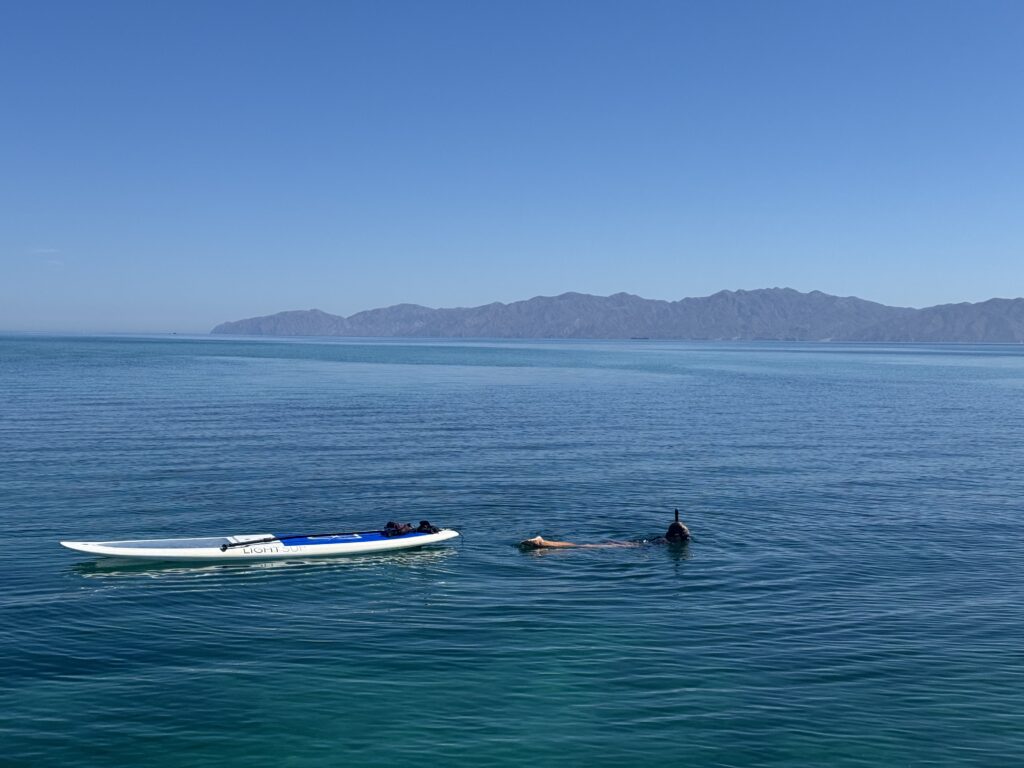
What Is SUPorkeling?
SUPorkeling is a mash-up of stand-up paddleboarding (SUP) and snorkeling. You paddle out to epic snorkel spots on a SUP, put on your snorkel gear, hop off with a leash attached to your SUP, and explore the underwater world.
It’s a human-powered adventure that gives you full access to shallow reefs, sea life, and that salty freedom of doing things your way. Think boat-free snorkeling, with your SUP as your floating basecamp.
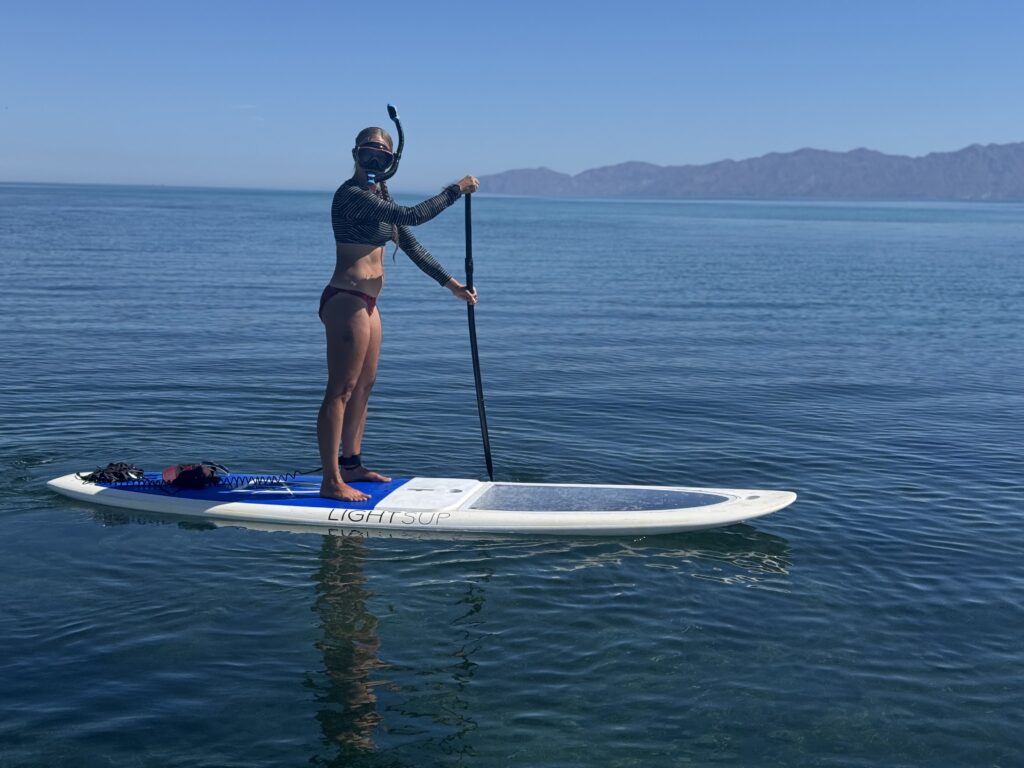
Why It’s Awesome 😎
Here’s why I’m totally hooked on it:
- You can reach better spots than just swimming off the beach.
- It’s way more flexible and quiet than a boat tour.
- Burns calories, not fossil fuels.
- Budget-friendly and easy to DIY.
- You can bring your dog, snacks, and buddies along for the ride.
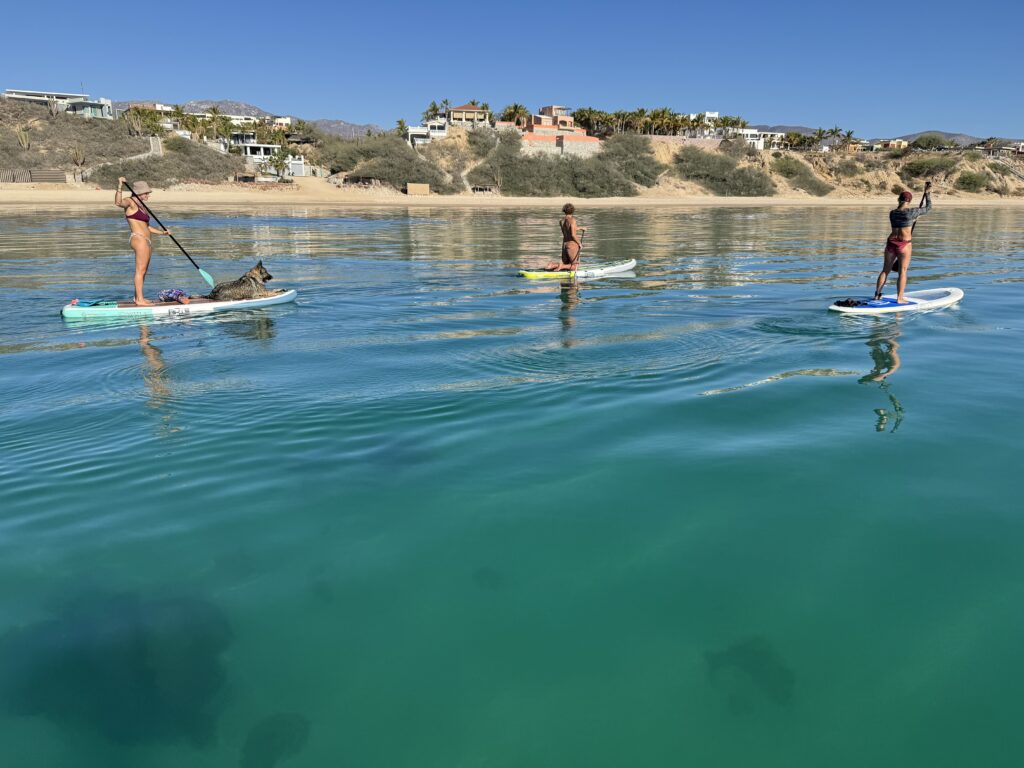
I’ve had mornings where I paddled out solo, dropped into crystal-clear water surrounded by tropical fish, then kicked back on the board for a floating snack break. Other days, I’ve explored multiple reefs with friends and even had my pup stretched out on the front of my board like a sea captain.
SUPorkeling vs. Boat Snorkeling
| Suporkeling | Boat Snorkeling |
|---|---|
| Human-powered, burn more calories, no fuel needed | Less of a workout, gas-powered to get to snorkeling spots, higher emissions |
| Quieter and more peaceful | Potentially loud engines, bigger groups, and crowds. |
| Explore multiple shallow spots | Great for deeper, further from shore spots. |
| Affordable + easier to do DIY. Can be guided. | Typically offered as guided tours only and added costs due to higher operational costs, guided tours |
SUPorkeling vs. Beach Snorkeling
Swimming straight from shore can work, but here’s why SUP is a game-changer:
- You can access better reefs farther from shore, without exhausting yourself.
- Avoid getting tossed in the shorebreak or stepping on sharp rocks or coral.
- Easier and safer entry/exit by entering from deeper water.
- You’re not limited to just one spot—explore 3-4 reefs in a single session.
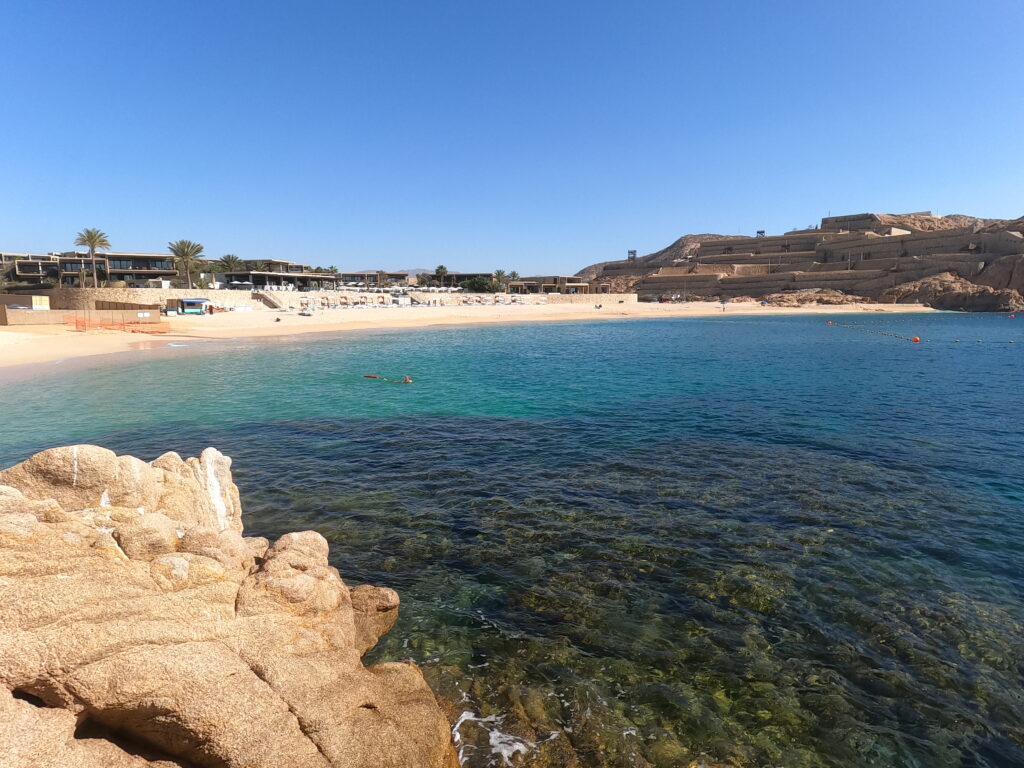
Why SUP Beats Kayak for Snorkeling
No shade to kayaking, but SUP takes the win here for me:
- It’s easier to get on and off the board while you’re in the water.
- Bigger, flatter surface to lounge, gear up, or stretch out.
- Standing = better visibility into the water as you search for reef zones.
- Dog-friendly—your pup has more room and better balance on a SUP.
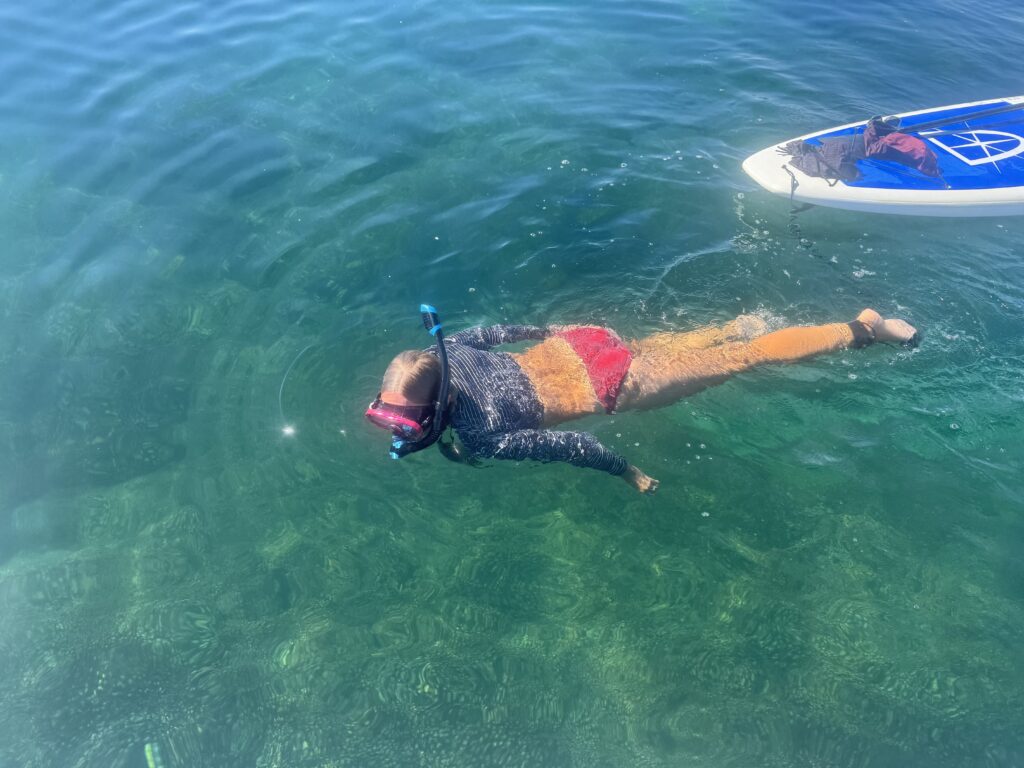
What You’ll Need (SUPorkeling Gear Checklist)
- Inflatable or hard SUP with tie-downs (ideally)
- Snorkel, mask, and fins
- Life jacket or snorkel vest
- Waterproof dry bag or fanny pack
- SUP Leash (always leash your board!)
- Optional: soft anchor (sandbag style) or just drift with your leash
- Rash guard or wetsuit, depending on the temps
- Reef-safe sunscreen
- Water, snacks, and a stoke-filled mindset
Leave No Trace for SUPorkeling
Human-powered adventures are only epic if we keep our wild places wild. Here’s how to suporkel responsibly and leave no trace:
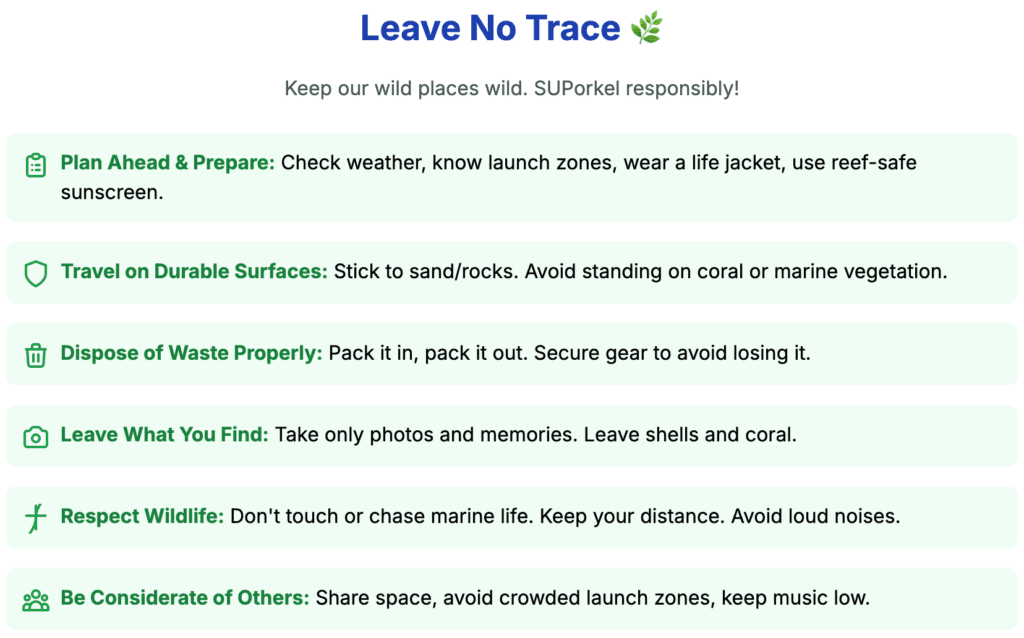
Principle 1: Plan Ahead and Prepare
- Check the wind + weather—suporkeling in strong wind = not fun or safe
- Know your launch and exit zones. Is there a potential for stepping on coral or sharp rocks?
- Wear a life jacket—it helps you float and stay off sharp coral.
- Take a SUP lesson (or watch some online videos if you’re confident) if you’re new; it’s just more fun when you know what you’re doing.
- Use reef-safe sunscreen (skip anything with oxybenzone or octinoxate).
Principle 2: Travel on Durable Surfaces
- Sand, rocks = durable surfaces, but stay off the beach vegetation
- Avoid standing on coral, rocks with life growing on them, or any underwater vegetation
- Walk your board into the water through sandy areas only
Principle 3: Dispose of Waste Properly
- Bring a dry bag for snacks and possibly another one for picking up any beach or ocean trash you may see.
- Skip the single-use plastics
- Keep gear secure: Strap your gear to your board to avoid it from becoming trash. Your sunglasses, hat, and water bottles can be secured to the SUP using a carabiner, gear straps, or rope.
Principle 4: Leave What You Find
- Take only photos—leave shells, coral, and sea treasures behind
Principle 6: Respect Wildlife
- Don’t touch or chase marine life
- Keep your distance—especially from sea turtles, rays, whales, sharks and nesting birds
- Avoid loud noises or splashing that could scare wildlife
Principle 7: Be Considerate of Others
- Share space with swimmers, beach-goers, and boaters
- Avoid crowded launch zones if possible.
- Keep music low or leave it off—nature’s soundtrack is better anyway
Pro tips for SUPorkeling
This isn’t too gnarly of a sport, but a few smart tips go a long way, I’ve made most of these mistakes:
- Most injuries happen getting on/off the board in shallow areas —take your time. Start on your knees if you have to and either stand up or sit down and paddle if you’re not comfortable
- Avoid sharp rocks, sea urchins, and coral when entering/exiting
- Always leash your board so it doesn’t float away while you snorkel
- If heading out solo, tell someone where you’re going
- Don’t overdo it—if you’re tired, rest on your board before paddling back
- When you get off your board, secure all of your belongings to the board, especially your paddle.
Where to Try SUPorkeling (Beginner-Friendly Spots)
Some of my favorite places, tested and approved and I’d love to hear about your favorite places, leave a comment below:
- Islas near Bahía de Concepción, Baja – calm, clear, reefy bays
- La Ventana, Baja – perfect for morning sessions and shore-access reefs
- Rincon, Puerto Rico – on my wishlist to go SUPorkel with one of our outfitters!
- Cabo Pulmo – a marine park with epic snorkeling, but check the regulations. You can’t snorkel in Cabo Pulmo on your own, but you can at some nearby beaches like Arbolito.
Final Thoughts
Suporkeling has completely changed how I explore the ocean. It’s slower, quieter, and more personal than any boat tour I’ve done—and it’s one of the most sustainable ways to experience marine life up close.
If you’re looking to level up your beach days with a human-powered twist, grab a board, a mask, and go send it.

